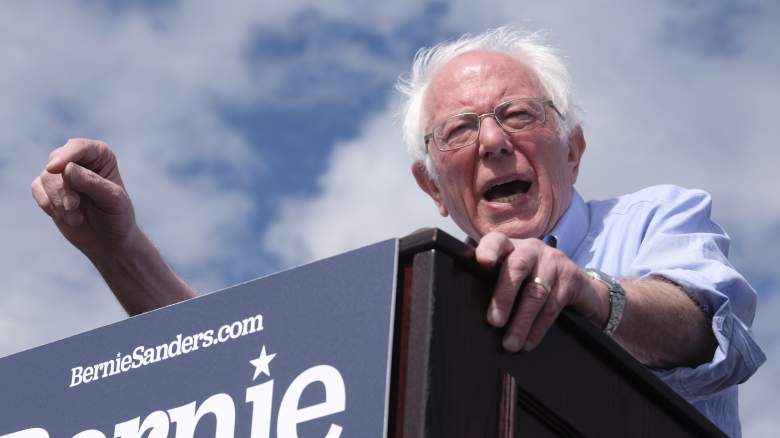
Two early contests down (well, mostly) and two to go in the Democratic Primary race.
After the longstanding traditional start in Iowa and New Hampshire, the race turns west and to a very different state than either of the previous ones, as Nevada holds its caucus on Saturday.
Nevada is younger, more diverse and the fastest-growing state on the early calendar.
It’s another caucus state, and there are fears that the problems that plagued Iowa could return in Nevada. Since the debacle in the first state to vote, Nevada Democrats have essentially redesigned their entire vote collection system. On the one hand, that means they won’t have the same problems we saw in Iowa, but they may have new and different ones.
First, redesigning your entire process so close to a deadline means you have little time to retrain the people running the event. There are mixed messages about how that is going, and we’ll just have to see Saturday.
Second, unlike Iowa, Nevada has a unique and complicating twist: early voting. So far about 75,000 people have cast votes ahead of Saturday’s official caucus day. In 2016 85,000 people voted, while in 2008 118,000 participated. The question with early voting, especially when it’s happening for the first time like this, is will it boost turnout or are they simply cannibalizing the day-of vote and spreading it out over a few days earlier in the week?
The major challenge early caucus voting presents is all of those votes have to be connected to their home precinct. The people running the local caucuses will get a list of voters who voted early and a list of candidates they support. The caucus official then must allocate those votes correctly to each candidate. If an early voter supported a candidate who is not viable on the first alignment, they will then go down that voters list to their second, third, and so on choices until the voter is matched with a viable candidate.
These are two complicating factors not found in Iowa and that haven’t been tried before in Nevada.
The caucuses begin at 12 noon Pacific time tomorrow. Results will be released by the state party as they are checked for accuracy. It’s impossible at this point to say when the first or final results will be known.
Aside from the mechanics of the caucus, what’s the state of the race look like coming out of New Hampshire and this week’s debate?
The Real Clear Politics average has only two candidates, Bernie Sanders at 30 percent, Joe Biden at 16 percent, at the statewide 15 percent threshold level for delegates. Pete Buttigieg is knocking on the door at 14 percent and Elizabeth Warren at 13.7 percent.
The Ozy.com-0ptimus-DDHQ model has it: Sanders 26, Biden 17, Steyer 16, Buttigieg 15, and Warren 12.
There are 48 total delegates in Nevada. 12 are “super delegates” and the remaining 36 are up for grabs Saturday. Thirteen are awarded proportionally at the statewide level and the rest proportionally at the congressional district level. So even a candidate who doesn’t get to 15 percent statewide, still has the chance to pick up some delegates.
Once we get beyond Nevada, the voting moves to South Carolina, where Joe Biden hopes to revive his campaign, on Saturday the 29th. Just three days later, we move on to March 3rd’s Super Tuesday. That’s where one of the most important trends we’ve been following will show its importance: fundraising.
The difference between the haves and have nots when it comes to money to advertise couldn’t be clearer. As of this week only three candidates are advertising on TV in California and Texas, self-funding billionaires Mike Bloomberg and Tom Steyer lead the way. Bernie Sanders is the only other candidate on air in the states that combine for 643 delegates.
Other candidates are on-air in some of the smaller states voting that day but the reality is, other than Sanders and the self-funders, all the campaigns are facing a cash crunch as the map expands rapidly and into larger, more expensive markets.
Candidates struggling to raise money can still hope to have a breakout moment in a highly watched debate, as Amy Klobuchar did in New Hampshire, but with primaries coming fast and thick now, the need for money and hard results increases dramatically. The lack of one can lead to a decrease in the other creating a fatal feedback loop. The traditional winnowing of the field may be taking a bit longer than normal but the shape of the nomination is going to come into sharper focus following the first of the non-“early states”.
As the late baseball great Yogi Berra said, “it gets late early out there.”
READ NEXT: Michael Bloomberg’s NDAs: 5 Fast Facts You Need to Know